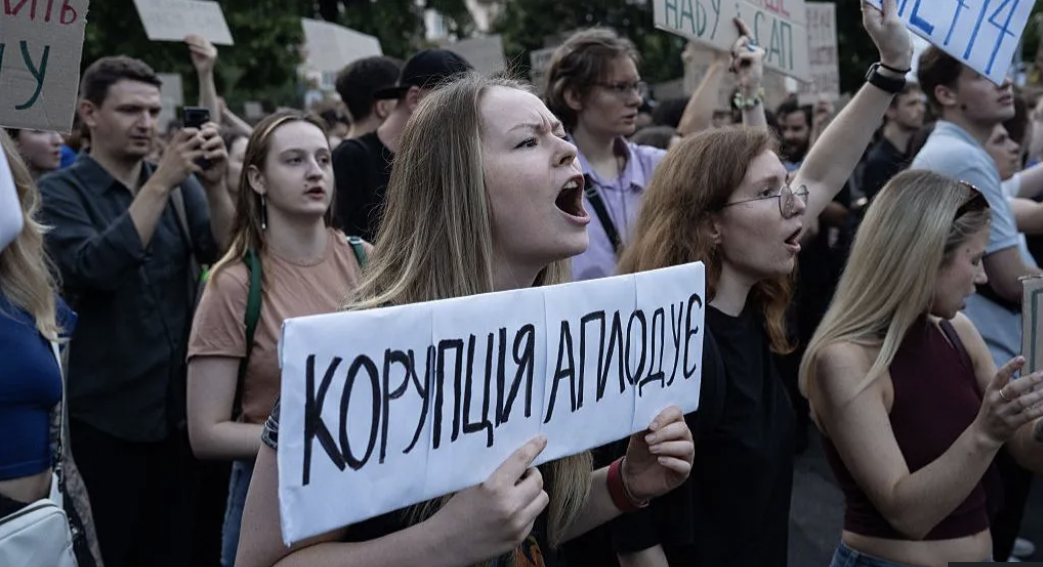

On July 22, 2025, protests broke out in various cities across Ukraine, including Kyiv, Odesa, Lviv, and Dnipro.
The protests were triggered by the passing of a bill that would weaken the powers of two of Ukraine's key anti-corruption bodies.
This has become the largest anti-government protest since the start of Russia's full-scale invasion in February 2022.
It all began after Ukraine’s President, Volodymyr Zelensky, signed a bill that is widely seen as undermining the authority of the National Anti-Corruption Bureau (NABU) and the Specialised Anti-Corruption Prosecutor’s Office (SAPO).
The law places both institutions under the control of the Prosecutor General, who is appointed by the President.
In a joint statement on Wednesday, the two affected agencies said they had been “deprived of guarantees that previously enabled them to effectively carry out their tasks and functions in combating high-level corruption.”
In an address on Wednesday, Zelensky said both agencies would continue to operate but needed to be cleared of Russian influence.
The signing of the law followed a series of approximately 80 searches by the Security Service of Ukraine (SBU) and the Prosecutor General’s Office (PGO), targeting 19 NABU employees across the country.
The SBU said the raids were conducted without court warrants to prevent “information leaks” and were part of investigations into state treason, illegal trade with Russia, and corruption.
Ambassadors from G7 nations expressed “serious concern” over the SBU’s actions against NABU and stated their intention to discuss the developments with Ukrainian government leaders.
The bill was originally intended to improve the state’s response to missing persons cases during Russia’s war and to provide legal aid to their families under martial law.
However, last-minute amendments fundamentally changed its purpose.
Critics argue that the law could allow presidential allies to evade accountability.
Following the nationwide outcry, President Zelensky submitted a new draft law to reinstate the independence of the two anti-corruption bodies.
Kyiv’s Western partners had also raised serious concerns about the original legislation.
On Thursday, Zelensky reversed course, saying the new bill was meant to safeguard the independence of NABU and SAPO and protect them from Russian influence.
NABU stated that the new bill “restored all procedural powers and guarantees of independence” for both bodies.
“Today, my bill is already in the Verkhovna Rada of Ukraine – fulfilling my promise – for justice, for law enforcement and anti-corruption agencies. Full-fledged guarantees of the independence of anti-corruption agencies. Real opportunities to verify, so that any Russian interference is kept out.
“Everyone who has access to state secrets, and this includes not only NABU and SAPO, but also the SBI and the National Police, must undergo lie detector tests. These must be regular checks,” Zelensky said.
Ukraine has long been considered one of the most corrupt countries in Europe.
Allegations of corruption have been levelled against some of the country’s top officials, including several close allies of the President, such as former Deputy Prime Minister Oleksiy Chernyshov.


















